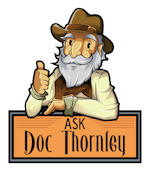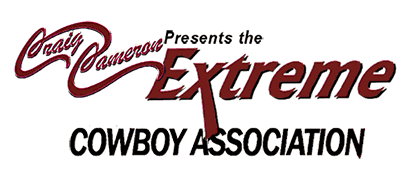|
 Understanding
Common
Conditions
in
Horses Understanding
Common
Conditions
in
Horses
If
you've
been
involved
with
horses
for any
significant
amount
of time,
you have
surely
heard
terms
like
insulin
resistant,
metabolic
syndrome
and
others,
and
maybe
you are
not
always
sure
what
they
mean.
The
reason
for this
is that
horse
owners
and even
some
veterinarians
can use
some of
the
terms
interchangeably
or
indiscriminately,
causing
confusion.
In
fairness,
it's
easy to
do so
because
many
metabolic
conditions
in
horses
have a
similar
set of
symptoms,
and some
are
treated
in
similar
ways,
but that
does not
mean
they are
the same
disease.
Let me
try to
offer
some
clarity
by
defining
some of
the most
common
metabolic
conditions
in
horses.
Insulin
Resistant
or IR
- An
insulin
resistant
horse,
often
called
an IR
horse,
is a
horse
that is
resistant
to the
metabolization
of
insulin
at a
cellular
level. A
horse
that is
strictly
insulin
resistant
does not
have a
disease,
per se,
but has
a
metabolic
problem
in the
processing
of
carbohydrates.
Since
insulin
resistance
is not a
disease,
there is
no cure
but only
management,
which
consists
of
exercise
and a
low-carb,
low-fat
diet
that is
supported
by
well-balanced
minerals.
Horses
that
have
other
metabolic
syndromes
or
diseases
can also
be
insulin
resistant,
but in
these
cases
the
resistance
is a
symptom
of the
underlying
disease
or
syndrome.
Before
moving
on to
the next
condition,
it is
helpful
to
understand
that a
syndrome
is
different
than a
disease.
A
syndrome
is a
recognized
set of
symptoms
without
a
distinctly
identifiable
cause. A
disease,
on the
other
hand,
may have
a set of
symptoms,
but it
also has
an
identifiable
underlying
cause
that is
known
and can
be
identified
Equine
Metabolic
Syndrome
or EMS
- A
horse
with EMS
is also
generally
insulin
resistant,
but the
insulin
resistance
is one
of
several
symptoms
within
the
syndrome.
Others
include
a
propensity
for
fatty
deposits
in the
abdomen,
the
crest of
the
neck,
the
eyes,
and
other
areas;
and
chronic
laminitis.
It is
thought
that EMS
originates
when
certain
tissues
produce
abnormal
levels
of
certain
hormones.
Like
insulin
resistance,
there is
no cure
for EMS.
It is
treated
in a
manner
very
similar
to
simple
insulin
resistance;
that is
a low-carb,
low-fat
diet
that is
high in
fiber,
and
supplements
with
proper
levels
of
minerals
and
vitamins.
A horse
with
metabolic
syndrome
is
sometimes
called a
metabolic
horse or
Cushingoid
horse.
The term
metabolic
disease
is also
sometimes
used to
describe
a horse
with
EMS, but
its use
is
technically
incorrect.
So now
that you
understand
IR and
EMS, it
is easy
to see
how
these
terms
very
frequently
get used
interchangeably
or
indiscriminately.
But it
doesn't
stop
there.
Indeed,
it
starts
to get
even
more
tricky.
Cushing's
Syndrome
-
Cushing's
syndrome
is a
term
often
used
interchangeably
with
equine
metabolic
syndrome.
The
reason
for this
is very
simple:
most
experts
agree
they are
one and
the
same,
meaning
they are
the same
set of
symptoms,
but
still
with an
unknown
cause.
Equine
Metabolic
Syndrome
has
become
the
preferred
term. Of
course
the
symptoms
are the
same;
insulin
resistance,
a
propensity
for
fatty
deposits
in the
abdomen,
the
crest of
neck,
the
eyes,
and
other
areas;
and
chronic
laminitis.
The
treatment
and
management
are also
the
same.
Cushing's
syndrome
or EMS
is most
often
first
recognized
in
younger
horses.
A horse
that has
Cushing's
syndrome
(or EMS)
is
sometimes
called a
Cushingoid
horse.
This can
be very
confusing,
because
a horse
with
Cushing's
disease
if also
often
called a
Cushingoid
horse,
but
the
syndrome
and the
disease
are
different.
Cushing's
Disease
-
Cushing's
disease
is
caused
by a
tumor
that
grows in
the
pituitary
gland,
causing
severe
hormonal
imbalances.
There is
no known
cure for
Cushing's
disease.
Cushing's
disease
can have
the
following
symptoms:
weight
loss,
excessive
thirst
and/or
urination,
chronic
laminitis,
a curly,
non-shedding
coat,
poor
muscle
condition,
a
propensity
to
infections,
and
irregular
fat
deposits.
Cushing's
disease
is most
often
diagnosed
in older
horses.
Cushing's
disease
is
treated
differently
than
Cushing's
syndrome
or EMS.
It can
include
both
diet and
specific
medication
to treat
the
hormonal
functions
of the
pituitary
gland.
For this
reason,
it is
critical
for a
skilled
veterinarian
to
diagnose
a horse
with
metabolic
symptoms
to
determine
if they
are part
of the
syndrome
or the
disease.
So, in
short,
here is
how I
remember
what
these
different
terms
mean:
1)
Insulin
resistant
(IR)
means a
horse
has
problems
metabolizing
insulin
and
therefore
difficulties
processing
carbohydrates.
2)
Insulin
resistance
can be a
single
problem,
or can
be a
symptom
of
Equine
Metabolic
Syndrome
(EMS),
Cushing's
syndrome
or
Cushing's
disease.
3)
Metabolic
syndrome
and
Cushing's
syndrome
are
the
same.
4)
Cushing
disease
is
not the
same
as
Cushing's
syndrome.
5)
IR, EMS
and
Cushing's
syndrome
are all
treated
with
diet,
nutrition
and
exercise.
6)
Cushing's
disease
is
treated
with a
combination
of diet,
nutrition
and
exercise,
as
well as
drugs.
7)
There
are no
cures
for any
of these
metabolic
conditions,
only
treatment
and
management.
Hopefully
this
will
help you
understand
the most
commonly
encountered
metabolic
problems
in
horses
more
clearly,
whether
you are
discussing
them
with
someone,
or if
you
happen
to have
a horse
that
suffers
from one
of them.
For the
sake of
clarity,
whenever
I
discuss
any of
these
issues
and
people
start
throwing
around
words
like IR,
metabolic
and
Cushing's,
I always
ask for
clarification
so I
know
exactly
what we
are
talking
about.
Not
surprisingly,
I find
that
people
are not
always
sure.
As
always,
this
article
is not
an
attempt
to
diagnose
or
prescribe
treatment
for any
particular
equine
health
problem.
If you
suspect
your
horse is
suffering
from a
metabolic
disorder
or any
other
health
problem,
it is
critical
to
consult
your
veterinary
professional
for
complete
testing,
diagnosis
and
treatment. |


